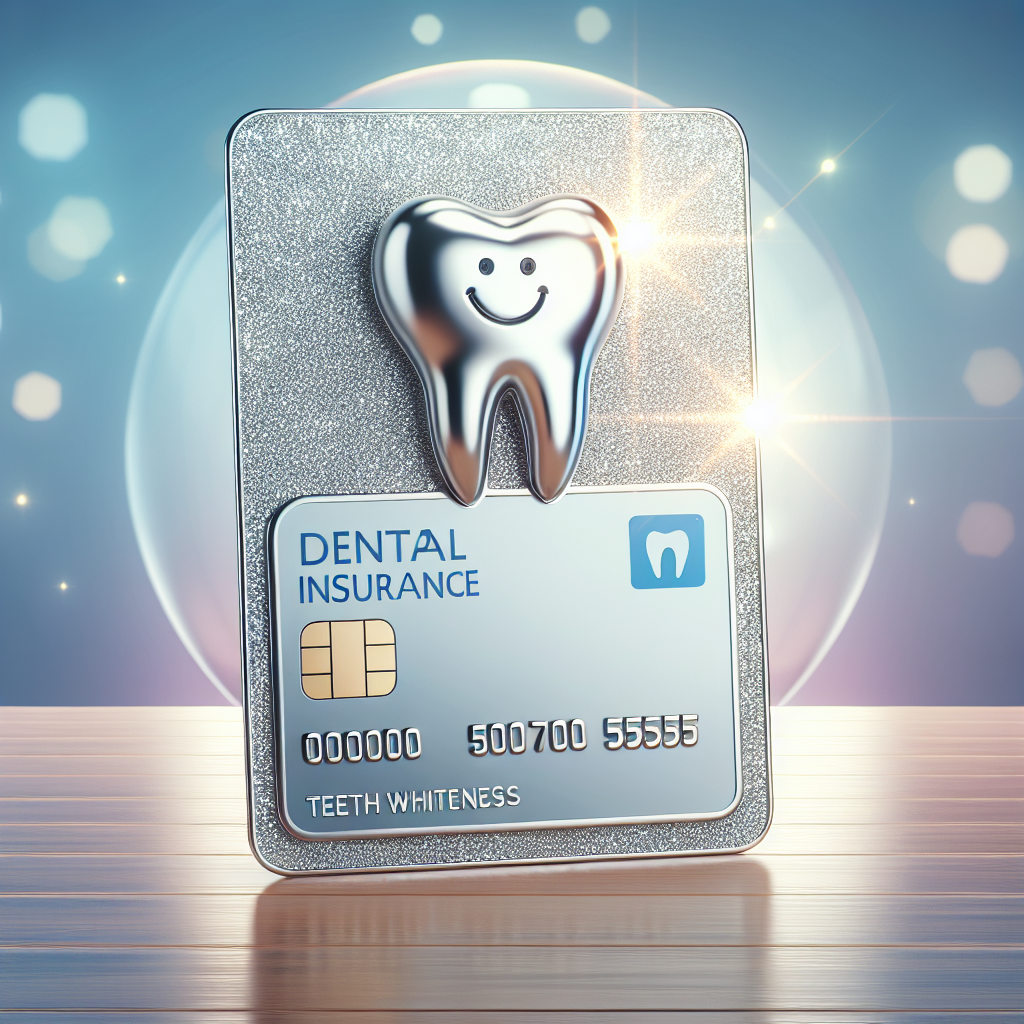Are you tired of hiding your smile because of yellow or stained teeth? Look no further! Introducing dental insurance with coverage for teeth whitening, a solution that will not only enhance your oral health but also boost your confidence and self-esteem. Say goodbye to dull and discolored teeth and hello to a brighter, whiter smile. With this comprehensive coverage, you can now enjoy professional teeth whitening treatments without breaking the bank. Don’t let your smile hold you back any longer – invest in dental insurance with coverage for teeth whitening and let your radiant smile shine through!
Learn more here: https://www.aetnamedicaredirect.com/
Understanding Dental Insurance Coverage

When it comes to selecting a dental insurance plan that includes coverage for teeth whitening, it is essential to understand the basics of how dental insurance works and the different types of plans available. Here is a breakdown of key points to consider:
- Dental Insurance Basics:
- Dental insurance is designed to help individuals offset the costs of preventive care, basic procedures, and major treatments related to oral health.
- Unlike medical insurance that often covers a broader range of services, dental insurance typically focuses on maintaining good oral health and addressing common dental issues.
- Types of Dental Insurance Plans:
- There are various types of dental insurance plans, including preferred provider organizations (PPOs), health maintenance organizations (HMOs), and fee-for-service plans.
- PPO plans offer a network of dentists that you can choose from, with varying levels of coverage for different procedures.
- HMO plans require members to select a primary dentist and obtain referrals for specialty care, often with lower out-of-pocket costs.
- Fee-for-service plans allow for more flexibility in choosing a dentist but may involve higher costs.
- Coverage Options for Dental Procedures:
- Dental insurance plans typically categorize procedures into preventive, basic, and major services.
- Preventive services such as regular cleanings and exams are usually fully covered or require minimal out-of-pocket expenses.
- Basic procedures like fillings and extractions may have a percentage of coverage, often around 70-80%.
- Major treatments such as root canals, crowns, and bridges typically have a lower coverage percentage, ranging from 50-70%.
- Teeth whitening is considered a cosmetic procedure in most cases, and coverage for it may vary among different insurance plans. Some plans may offer partial coverage for teeth whitening if it is deemed medically necessary, such as for intrinsic stains caused by certain medications or conditions.
Importance of Teeth Whitening Coverage
Teeth whitening coverage is a valuable component of dental insurance plans, providing individuals with access to cosmetic dental procedures that can enhance their smile and overall self-confidence. Understanding the importance of teeth whitening coverage involves recognizing the following key aspects:
- Benefits of teeth whitening
Teeth whitening is a popular cosmetic dental procedure that can effectively remove stains and discoloration from teeth, resulting in a brighter and more attractive smile. This procedure can significantly improve a person’s appearance and boost their self-esteem, leading to increased confidence in social and professional settings. Teeth whitening is a non-invasive treatment that can yield immediate results, making it a desirable option for individuals looking to enhance their smile’s aesthetic appeal.
- Cost of teeth whitening without insurance
The cost of teeth whitening procedures can vary depending on the type of treatment and the dental provider’s location. Without insurance coverage, individuals may have to bear the full cost of teeth whitening out of pocket, which can be a significant financial burden for many. The expenses associated with professional teeth whitening treatments can range from hundreds to thousands of dollars, making it inaccessible to individuals on a tight budget. Dental insurance that includes coverage for teeth whitening can help mitigate these costs, making this cosmetic procedure more affordable and accessible to a wider range of people.
- Impact of insurance coverage on dental care decisions
Having dental insurance coverage for teeth whitening can influence individuals’ dental care decisions by encouraging them to prioritize cosmetic treatments that can improve their smile’s appearance. When teeth whitening procedures are included in an insurance plan, individuals are more likely to consider undergoing this treatment to address dental stains and discoloration. The availability of coverage for teeth whitening can incentivize individuals to seek preventive dental care and maintain good oral hygiene habits, knowing that they have access to cosmetic treatments that can enhance their smile with financial support from their insurance provider.
Evaluating Dental Insurance Plans
Coverage for Preventive Care
- Importance of preventive dental care
- Preventive dental care plays a crucial role in maintaining oral health and preventing dental issues such as cavities, gum disease, and tooth decay.
- Regular check-ups and cleanings can help detect problems early on, leading to more effective and less costly treatments in the long run.
- By emphasizing preventive care, individuals can avoid more extensive dental procedures and maintain a healthy smile.
- Does insurance cover routine teeth cleaning?
- Dental insurance plans often cover routine teeth cleaning as part of their preventive care benefits.
- These cleanings are typically recommended every six months to remove plaque and tartar buildup, preventing issues like cavities and gum disease.
- Coverage for routine cleanings may vary among insurance providers, so it is essential to review the specific details of each plan to understand the extent of coverage available.
Coverage for Cosmetic Procedures
- Definition of cosmetic dental procedures
Cosmetic dental procedures are treatments that focus on improving the appearance of teeth, gums, or bite. These procedures are elective in nature and are not considered medically necessary for the health of the patient. Common cosmetic procedures include teeth whitening, veneers, dental bonding, and orthodontic treatments primarily for aesthetic purposes. - Does insurance cover teeth whitening as a cosmetic procedure?
Insurance coverage for teeth whitening as a cosmetic procedure varies among dental insurance plans. In general, traditional dental insurance plans do not typically cover teeth whitening procedures as they are considered elective and cosmetic in nature. However, some insurance plans may offer coverage for teeth whitening under certain circumstances, such as if it is deemed necessary for the patient’s psychological well-being or if it is part of a more extensive treatment plan to restore dental health. Patients interested in teeth whitening should check their specific insurance plan details or inquire with their insurance provider to determine if coverage is available.
Coverage Limitations and Exclusions
Dental insurance plans typically come with coverage limitations that may impact the extent to which teeth whitening procedures are covered. It is essential for individuals to carefully review the terms of their insurance policy to understand what is included and what may be excluded. Some common limitations and exclusions related to teeth whitening procedures include:
- Cosmetic Nature: Many dental insurance plans consider teeth whitening to be a cosmetic procedure rather than a necessary treatment for oral health. As a result, coverage for teeth whitening may be limited or excluded altogether.
- Coverage Caps: Some insurance plans impose annual or lifetime caps on coverage for dental procedures, including teeth whitening. This means that once the coverage limit is reached, the individual would be responsible for the full cost of any additional teeth whitening treatments.
- Pre-Existing Conditions: Insurance providers may not cover teeth whitening procedures if they are deemed to be addressing pre-existing cosmetic concerns rather than new issues that have arisen during the coverage period.
- Alternative Treatments: In some cases, insurance plans may offer coverage for alternative treatments that address the underlying cause of tooth discoloration rather than solely focusing on teeth whitening procedures. This could impact the coverage available for traditional teeth whitening methods.
- Specialized Whitening Techniques: Certain advanced teeth whitening techniques, such as laser whitening or in-office treatments, may not be covered under standard dental insurance plans due to their specialized nature and higher associated costs.
Understanding the coverage limitations and exclusions related to teeth whitening procedures can help individuals make informed decisions about their dental insurance plans and explore alternative options for achieving a brighter smile.

Choosing the Right Dental Insurance Plan
When considering dental insurance plans that include coverage for teeth whitening, there are several key factors to keep in mind to ensure you select the most suitable option for your needs:
- Coverage for Teeth Whitening: The first and most crucial aspect to consider is whether the dental insurance plan offers coverage for teeth whitening procedures. Some plans may include this as a standard benefit, while others may offer it as an optional add-on or require a separate rider for cosmetic treatments.
- Network of Dentists: Check whether the dental insurance plan has a wide network of dentists who offer teeth whitening services. Having access to a variety of providers can increase the likelihood of finding a convenient and experienced dentist to perform the procedure.
- Costs and Co-Payments: Evaluate the cost-sharing structure of the dental insurance plan, including deductibles, co-payments, and annual maximums for teeth whitening treatments. Understanding these financial aspects can help you budget effectively for any out-of-pocket expenses.
- Pre-Authorization Requirements: Some dental insurance plans may have pre-authorization requirements for cosmetic procedures like teeth whitening. Be sure to inquire about any necessary approvals or documentation needed before undergoing the treatment to avoid unexpected claim denials.
- Annual Coverage Limits: Be aware of any annual coverage limits imposed by the dental insurance plan for teeth whitening services. Understanding these limits can help you plan your treatments effectively to make the most of your coverage without exceeding the maximum benefit amount.

– Additional Benefits: In addition to teeth whitening coverage, explore whether the dental insurance plan offers other preventive or cosmetic services that align with your oral health goals. Maximize the benefits of the plan by taking advantage of all available services to maintain a healthy and bright smile.
Frequently Asked Questions about Dental Insurance and Teeth Whitening
- Can teeth whitening be considered a medically necessary procedure?
Teeth whitening is generally considered a cosmetic procedure rather than a medically necessary one. As such, many dental insurance plans do not cover the cost of teeth whitening treatments. However, there may be exceptions in cases where the discoloration of the teeth is a result of certain medical conditions or treatments. It is advisable to check with your insurance provider to determine if teeth whitening can be covered under specific circumstances. - How does dental insurance coverage for teeth whitening vary among providers?
The coverage for teeth whitening treatments varies significantly among dental insurance providers. Some insurance plans may offer partial coverage for teeth whitening as part of their cosmetic dentistry benefits, while others may exclude it altogether. It is essential to review your insurance policy or contact your provider directly to understand the extent of coverage available for teeth whitening procedures. Additionally, some insurance plans may offer discounts or special rates for teeth whitening services through in-network dental providers. - Are there alternative options for covering the cost of teeth whitening?
If your dental insurance does not cover teeth whitening or if you do not have dental insurance, there are alternative options available to help offset the cost of treatment. Some dental offices offer financing plans or payment options to make teeth whitening more affordable for patients. Additionally, discount dental plans or membership programs may provide reduced rates for cosmetic dental procedures, including teeth whitening. It is recommended to explore these alternative options to find a solution that fits your budget and dental care needs.
FAQs for Dental Insurance with Coverage for Teeth Whitening
What is teeth whitening and why is it not always covered by dental insurance?
Teeth whitening is a cosmetic dental procedure that involves removing stains and discoloration from the teeth to improve their appearance. It is not always covered by dental insurance because most insurance policies focus on preventive and necessary dental treatments rather than elective cosmetic procedures. However, some insurance plans may offer coverage for teeth whitening as an optional add-on.
How can I find out if my dental insurance covers teeth whitening?
To find out if your dental insurance covers teeth whitening, you can review your policy documents or contact your insurance provider directly. Some insurance companies may have specific guidelines and restrictions regarding coverage for cosmetic procedures like teeth whitening, so it’s best to clarify with them.
Are there any limitations or restrictions to coverage for teeth whitening under dental insurance?
Yes, there may be limitations or restrictions to coverage for teeth whitening under dental insurance. This can include requirements such as a pre-authorization from the insurance provider, a specific dentist or dental office where the procedure must be done, or a maximum coverage limit for the treatment. It’s important to understand the terms and conditions of your insurance policy before proceeding with teeth whitening.
Can I upgrade my dental insurance to include coverage for teeth whitening?
Some dental insurance plans may offer the option to upgrade or add on coverage for cosmetic procedures like teeth whitening for an additional cost. If you are interested in expanding your coverage to include teeth whitening, you can inquire with your insurance provider about any available upgrade options or supplemental insurance plans that may be available.
Are there alternative options for financing teeth whitening if my dental insurance does not cover it?
If your dental insurance does not cover teeth whitening or if you are unable to upgrade your policy to include it, there are alternative options for financing the procedure. You can consider paying out-of-pocket for the treatment, exploring payment plans or financing options offered by dental offices, or utilizing flexible spending accounts (FSAs) or health savings accounts (HSAs) to cover the cost of teeth whitening. It’s important to weigh your options and choose the financing method that best fits your budget and needs.